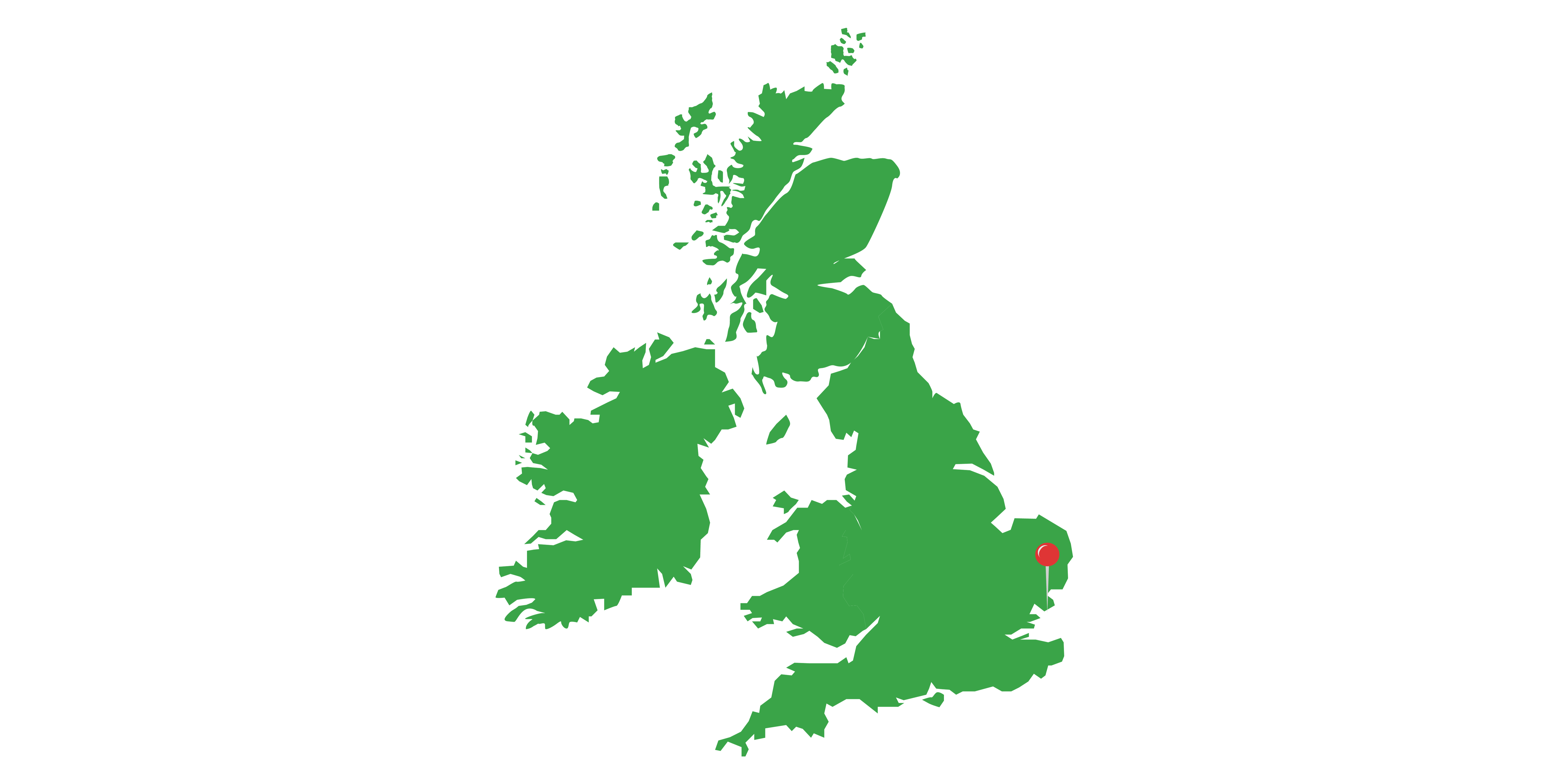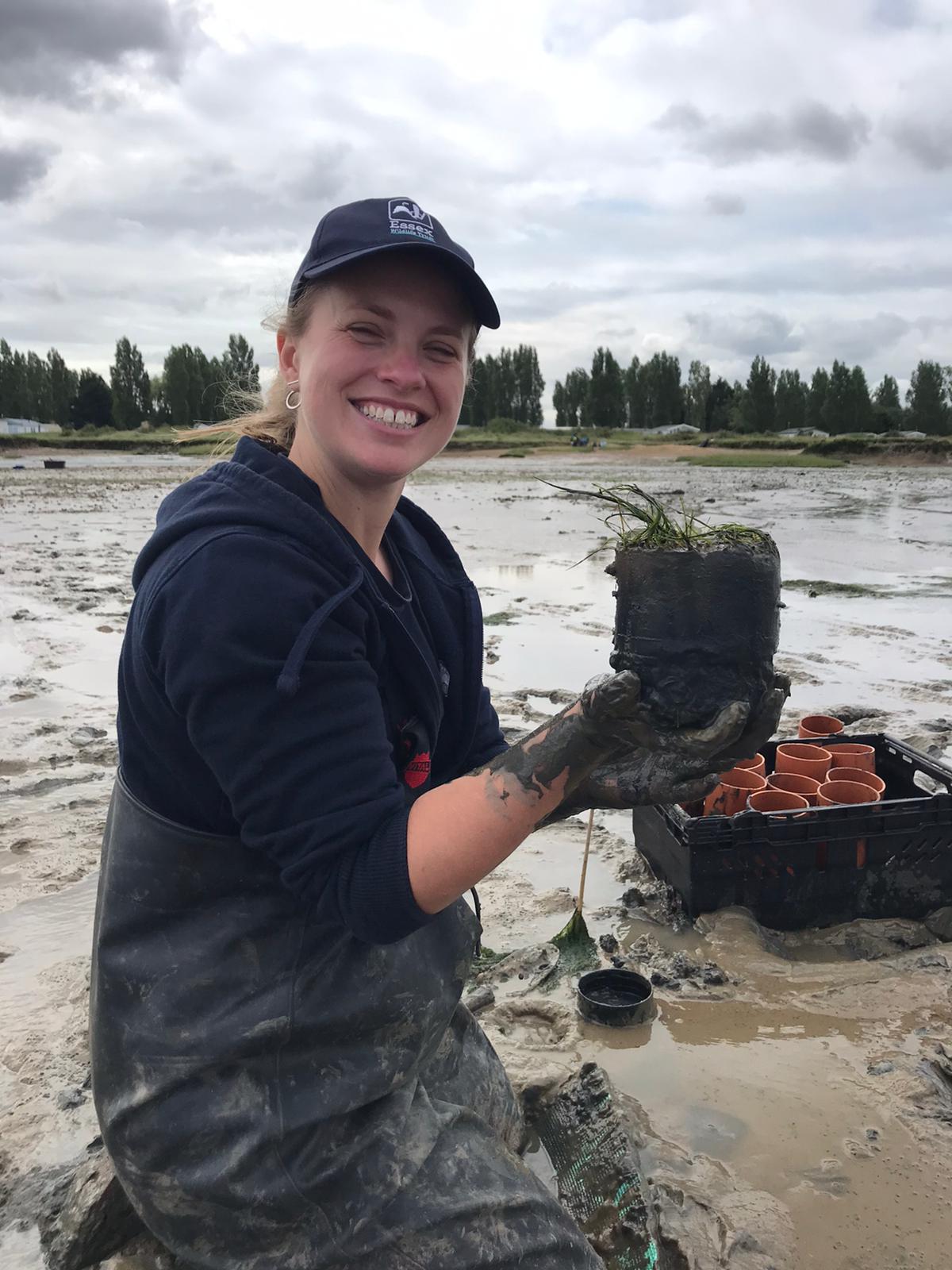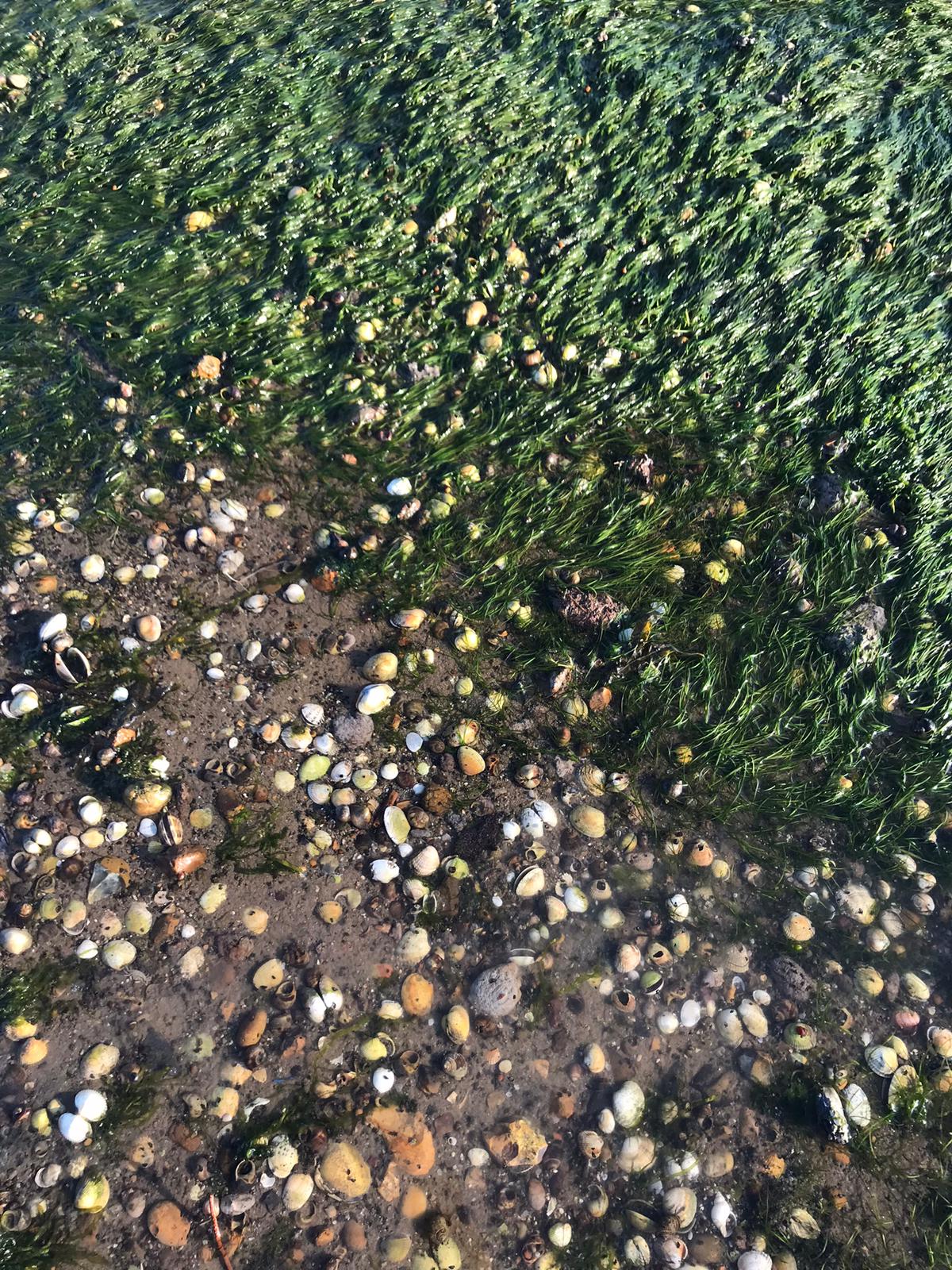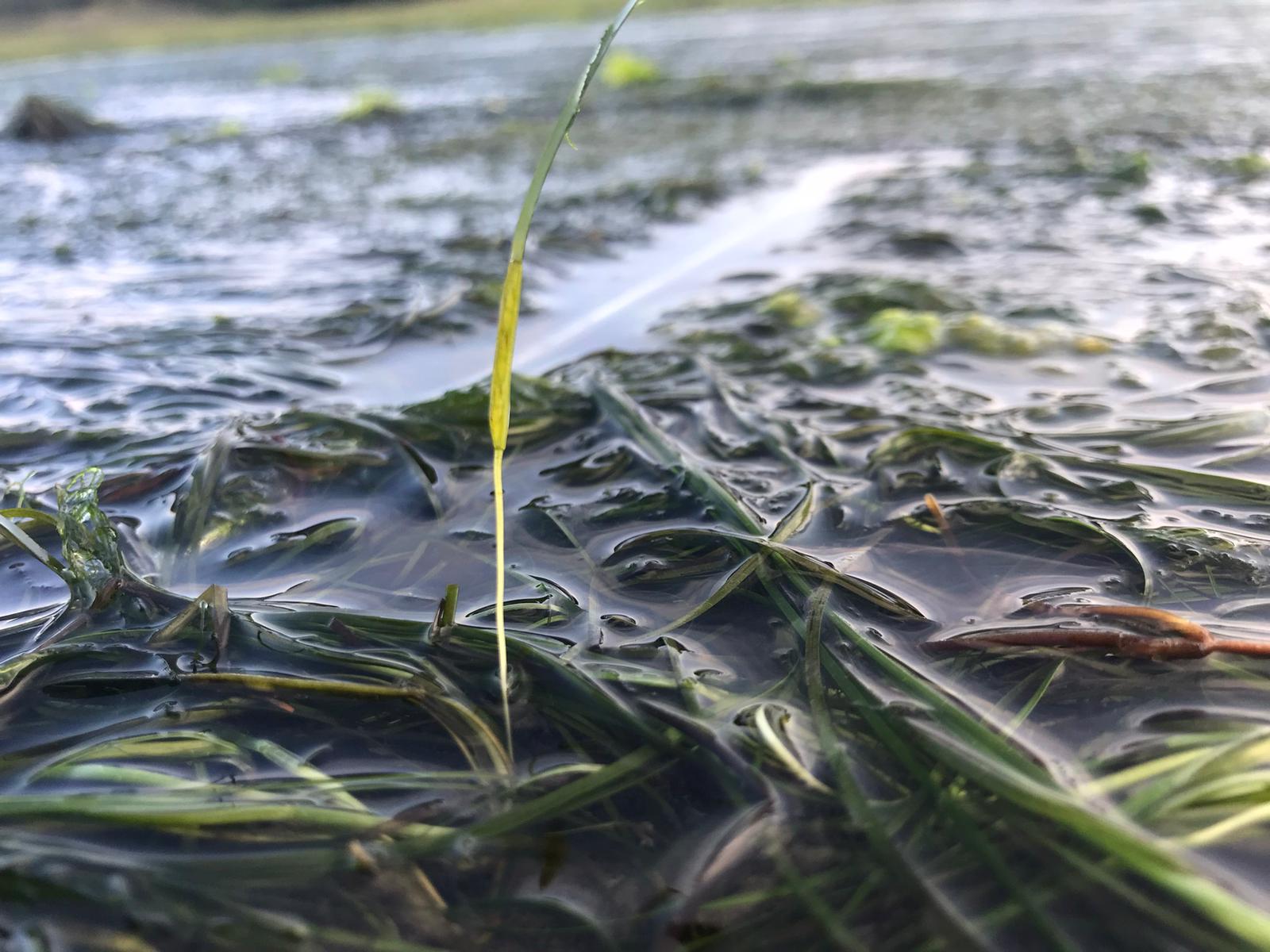SEAGRASS SEEDS OF RECOVERY: ESSEX
SEAGRASS SEEDS OF RECOVERY: ESSEX
We’re carrying out a series of small-scale restoration trials in the Stour, Orwell and Blackwater estuaries of Essex. These trials aim to identify the most successful and efficient planting method for dwarf eelgrass, Zostera noltii, to enhance the natural recovery of dwarf eelgrass meadows in the Stour, Orwell, and Blackwater.

PARTNERS

FUNDERS

We’re exploring the most effective restoration methods for dwarf eelgrass to enhance the natural recovery of seagrass meadows across the Essex and Suffolk estuaries. Restoration of seagrass will support the UK Government’s 25 year Environment Plan. With water quality having improved in recent times conditions are right in some areas for the restoration of seagrass to begin.
The Stour, Orwell and Blackwater were historically characterised by large seagrass meadows. However, since the 1970s, surveys have estimated a 98% decline in seagrass cover across these areas.
Since the start of the UN Decade On Ecosystem Restoration (2021-2030) we have been working in Essex and Suffolk on the planting and restoration of seagrass meadows. This work began with Seagrass Seeds of Recovery, which provided the blueprint for the upscaling the restoration of seagrass to enhance the resilience of the estuarine and coastal waters of the Affinity Water and Anglian Water supply regions in Essex and Suffolk.
In March 2023, we travelled to Arcachon Bay, France, with The Fieldwork Company (TFC) from the Netherlands, the French Office for Biodiversity (OFB), and the London Zoological Society (ZSL) to learn how to conduct Z. noltiitransplants using cores and bring the knowledge back to Essex and Suffolk. From this trip, we formed an international collaboration and are now replicating transplant trials internationally.



This Summer we completed the first of the transplant trials. This was a team effort, with volunteers from the Environment Agency, Essex Wildlife Trust and Natural England. Cores were removed from a healthy ‘donor meadow’ and planted at the same site, to aid meadow expansion. Early monitoring of the transplants, completed by Project Seagrass and Essex Wildlife Trust, has already indicated successful results, with >90% of the transplants still in place.
Project Seagrass are planning on scaling up the transplant restoration trials; next Spring we hope to be completing transplants across the Stour and Orwell, as well as more at the Blackwater Estuary. We also hope to take this trial a step further and transport the transplants away from the donor meadow to sites where seagrass has significantly declined or is now absent.
This truly innovative partnership of regulators, academic institutions, experienced delivery partners and water companies was the first of its kind.
GET INVOLVED
Sign up to our volunteer database to hear when opportunities are available to get involved. If you spot seagrass, make sure to upload your sighting to SeagrassSpotter to help track the distribution and status of our seagrass meadows.

